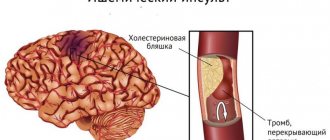Self-criticism is familiar to many people firsthand.
All the time mentally return to your mistakes and failures, doubt whether you did something in vain or not in vain, and blame, blame, blame yourself for all the sins of the world. Or, conversely, go deeper into self-examination and look for excuses for yourself in any situation. It seems like a kind of masochism, doesn't it? But from the inside, self-criticism is perceived as natural and approved behavior: if you reproach yourself, it means that you are quite critical of yourself and in general are a highly moral and conscientious person. However, there is a huge difference between healthy reflection and painful self-criticism. From this article you will learn:
- What are the reasons for self-criticism
- What are the signs of self-criticism?
- What are the dangers of self-flagellation?
- How to get rid of self-criticism
Content:
- Psychology of self-flagellation;
- Reasons for self-flagellation;
- How self-criticism manifests itself;
- Types of self-flagellation;
- How self-flagellation affects a person’s personality;
- How to get rid of self-criticism;
- Why is it important to have a track record of achievement?
- Productive and unproductive self-criticism;
- About the connection between pessimism and self-flagellation;
- “Artificial thought flow” technique;
- Learn from the professionals;
- Connect conductors and semiconductors on the way to the target;
- Hurry, take your time;
What is self-flagellation?
You can probably guess what self-flagellation means? It is human nature to succumb to moods and feel guilty for past mistakes. The concept is close to the state that we call pangs of conscience.
But the meaning of the word “self-flagellation” is somewhat broader. It is characterized by negative consequences that are sure to be faced by those who are susceptible to such attacks.
In psychology, self-flagellation is a process to which a person deliberately exposes himself. This is a kind of punishment for yourself. A person consciously deprives himself of all pleasures, joys, and positive emotions. This is how he punishes himself for wrongdoing, bad thoughts, behavior, action.
Let's give an example. A woman is on a grueling diet. As a result, she “breaks down” and eats a piece of cake. She begins to experience feelings of guilt, self-hatred, and believes that she is unworthy of normal nutrition. As a result, the diet becomes more restrictive. She drinks only water, driving herself to exhaustion. This is an elementary example of self-flagellation, but it reflects the meaning of the concept.
Self-flagellation means punishing, blaming oneself. Consequences arise inevitably. They worsen the quality of life, lead to neuroses, depression, and sometimes end in suicide.
Frequent or constant attacks of self-flagellation can be safely called deviations from the norm. It is important to seek psychological help so that a specialist can help you get rid of addiction.
Psychology of self-flagellation
Self-flagellation and self-criticism are habits that poison life. This is immoderate, excessive self-criticism. A healthy analysis of your actions, your words, your behavior leads to personality development. Normally, we should be able to look at ourselves from the outside and evaluate our own actions for compliance with our life goals. But sometimes something creeps into our head that we replay over and over again, scolding ourselves and making us feel insecure and weak. Naturally, in such a state you do not develop your personality and even stagnate in one place.
Consequences of self-blame for the individual
It is only at first glance that it seems that self-criticism can be beneficial. Of course, a person who is overly responsible, striving for ideals in everything, is convenient for society. But it is the “Samoyeds” who face the negative consequences of destructive self-criticism.
- Negative emotions with which a person is filled gradually become an integral part of his character. Depression, anger, and discontent result in hysteria and pessimism. All this not only gnaws at a person from the inside, but also periodically spills over to loved ones.
- Low self-esteem. Samoyeds do not like themselves. Others don't like them. They are loners.
- All moral strength is spent on self-flagellation, and not on positive activities.
- Any minor difficulty unsettles the Samoyed. There is neither strength nor courage to solve problems.
- The Samoyed's rational thinking is switched off. He becomes fixated on emotional experiences.
- Self-flagellation takes away peace of mind, sleep, and time.
- Fans of self-criticism often become victims of manipulation due to an increased sense of guilt.
In addition, people who are accustomed to excessive self-examination often have psychosomatic health problems:
- bronchial asthma;
- decreased libido, impotence;
- chronic headaches;
- hypertension or hypotension;
- arthrosis;
- peptic ulcer of the intestines or stomach;
- dermatosis
Traditional treatment of these diseases in Samoyeds is ineffective. But many can be gotten rid of as soon as a person stops overly criticizing himself.
Reasons for self-flagellation
Any phenomenon has its reasons. Excessive self-criticism is formed under the influence of many factors:
- Low self-esteem . The person is dissatisfied with himself. The process of self-flagellation begins. Self-esteem decreases. Remorse increases. And this is a vicious circle that will not close until at least one component is eliminated.
- Miseducation . If parents are overly self-critical, then their children can become like that over time (provided that mom and dad were authorities for the child).
- Hypertrophied parent in the personality structure (according to the theory of transactional analysis). And now from Russian to normal. The famous psychologist Eric Berne identified the following ego states in the personality structure:
- adult (looking at the world objectively),
- childish (our desires are expressed through it),
- parental (that is, criticism, self-criticism - it’s all here).
Normally, these 3 conditions should be distributed equally in each person. Overly self-critical people have too strong a parental position, which overshadows the adult one. As a result, a person criticizes himself, completely disregarding objective reality (the inner adult is responsible for this).
- Pessimistic view of the world.
- The desire to relieve oneself of responsibility.
- Just a habit . A person would be glad to get rid of it, but everything happens by itself.
Self-criticism from a psychological point of view
When a person experiences negativity towards himself, it is commonly called self-criticism. This is a condition that can develop from neurosis into self-humiliation and self-flagellation, but it is impossible to simply let go of the situation.
Psychologists define self-criticism as a negative assessment of one’s own actions, deeds or words. And the result is total dissatisfaction and self-rejection. If we compare this state with adequate self-criticism, then the latter has some constructiveness. This makes it possible to adequately analyze the situation and draw certain conclusions. Self-criticism does not lead a person to self-destruction because it does not evoke such strong emotions.
Over time, self-criticism can develop into a bad habit. It becomes fixed in the individual, lowers self-esteem, and affects the perception of the surrounding reality and oneself. Sometimes a person gets so used to internal eating that he begins to blame himself for it and completely withdraws. And the reason for this may be just one mistake that was repeated once or several times. And if a person treats himself very strictly and is used to being ideal, then this can become a prerequisite for him to destroy his image.
How does self-criticism manifest itself?
Self-criticism begins after realizing a mistake (or its repetition). The man decided that he needed to be perfect. Right now. And if not, then he is a mistake of nature. He missed and stumbled. He started gnawing at himself. He says: “That’s it, I’ll never do this again.” And then he makes mistakes again (and often steps on the same rake) and gnaws at himself even more. It should become even more ideal! On the first try. And this is such a shame. The poor fellow forgot that the first pancake almost always comes out lumpy.
Self-criticism ends in neuroses and psychoses. In extreme cases, a person injures himself or commits suicide. But much more often, life simply goes downhill steadily, which makes us gnaw at ourselves even more. Self-flagellation often ends in alcoholism and drug addiction, which destroy a person’s health and social status. Psychosomatic diseases also appear (that is, diseases whose trigger is constant negative emotions). At one point, a neurotic person comes to the doctor, and he tells him: “you have cancer and I don’t know why.” And the reason is simple - he was engaged in self-criticism for 20 years.
But all this is in extreme cases! For the most part, a person simply lives a dull life, goes to the office, gets paid pennies and chews himself from time to time. There is no degradation, but there is no development either. Just stable unhappiness . And this is what the majority do in our country, alas.
How to recognize self-criticism: signs
Signs of self-criticism
If a woman constantly engages in self-criticism, then she is never satisfied with herself. She doesn’t like absolutely everything - how she looks, what she does, character, intelligence, and so on. With this attitude, it won’t take long for you to get sick.
If suddenly a problem happens in life, then she begins to blame herself for everything and consider that she is a failure and in general she deserves it. Such self-criticism gradually leads to the disappearance of all the joy of life. A person loses all determination, he cannot start something new, realize his dreams, and also assert himself. He also doesn’t understand that he is actually “eating” himself. Relatives or articles on the Internet can help you figure this out.
In psychology, the following signs of self-criticism are identified:
- Complexity
- Constant self-hatred
- Comparing yourself with someone even in small things
- Depression
- Shame about the lifestyle a person leads
- Poor appetite or vice versa gluttony
- Bad dream
- The desire to change your life, but there is no readiness for this
- Rejection of one's body and appearance
- Constant regret that life is worthless and the person has achieved nothing
Self-criticism also differs by gender. For example, women are constantly hysterical about their own appearance, and men “eat” themselves for low incomes and poor social status. For example, if a man lives with his mother, then he may reproach himself for the fact that he cannot buy his own home. A bachelor who lives alone feels unwanted. But a married man may feel like a henpecked man and a slave to his wife.
Types of self-flagellation
The following types or degrees of self-critical personality are distinguished:
- Soft . A person demonstratively scolds himself, but does not cause psychological damage. He says that he is a loser so that others will feel sorry for him. And he himself benefits from ostentatious self-flagellation. The reason for this behavior is a lack of sense of responsibility. People usually scold themselves for show so as not to be blamed. This is a way of abdicating responsibility, combined with self-doubt.
- Tough . A person gnaws at himself because of an exaggerated sense of responsibility. This is no longer a demonstrative form, but this does not make it any less destructive, even more so.
- Neurotic . In this case, self-flagellation becomes a common habit for a person, and only the slightest reason is enough. He no longer even notices how he does it.
Types of self-criticism: description
Types of self-criticism
There are several types of self-criticism and self-flagellation:
- Demonstrative . In fact, this is not even self-criticism, it is only external. In this case, self-criticism is exposed and the person allegedly reproaches himself for mistakes and thereby begs for attention and sympathy. However, in fact, he does not suffer at all, or not as much as he shows.
- Introverted . In this case, all the drama occurs within the person. It doesn't show anything on the outside. Introverted Samoyeds do not play in public, but at the same time they are afraid to be left alone with themselves. They strongly reproach themselves for everything they have done and not done, and also try to find more and more new ways to blame themselves and remain in a sad state. All mistakes become a drama, a person does not love himself and it is difficult to get out of such a state.
- Neurotic . This is active self-criticism, which becomes an entire strategy and determines a person’s choice. There is self-humiliation and spiritual masochism here, and this is the only motivator. It is almost impossible to independently understand that such a worldview is limited.
How does self-flagellation affect a person's personality?
Self-flagellation prevents a person from developing. We focus on the shortcomings when we need to think about how to improve the necessary areas of life.
- Focusing on shortcomings is a negative focus.
- Focusing on how to improve your life is a positive focus. And as you know, what we focus on is what we attract into our lives. We become more optimistic, which creates conditions for personal development and self-improvement. If we bite ourselves, life will become unbearable.
Many people mistakenly believe that self-criticism is the path to development. But this is not so, moderate self-criticism is the main thing in personality development. And self-criticism leads to the development of only psychosomatic and physiological diseases. Feel this edge!
Nobel for self-criticism
If desired, the Nobel Committee can be criticized for bias, for sluggishness, or even for distributing prizes in advance. But the committee cannot be blamed for one thing: the Karolinska Institute knows how to maintain intrigue. The decision in the nomination for physiology and medicine only confirms this: the prize was awarded to Yoshinori Osumi, noting his very important, but already quite old work on autophagy. So we still don’t know whether the next chemical prize this year will go to one of the discoverers of such “cute” things as the CRISPR system, optogenetics or cancer drugs based on chimeric receptors. Or maybe it’s not a matter of maintaining suspense, but a simple message: the importance of your work for science does not depend in any way on how “hot” the topic you’re working on is. In this case, the fate of Yoshinori Osumi illustrates this thesis perfectly.
Osumi's biography cannot be called full of extraordinary events. He was born in 1945 in Fukuoka, in 1963 he entered the University of Tokyo and still works there. After receiving his PhD and before returning home, he worked in the USA at the Rockefeller Institute. Ohsumi's first scientific interest was in translation initiation, the process that begins protein synthesis in the ribosome. It's funny that his fame and the current prize were brought to him by works that were completely opposite in topic. Namely, how proteins and other molecules are destroyed and complete their life cycle in the cell.
The current prize was awarded to Osumi with the wording “for the discovery of the mechanism of autophagy.” Here, first of all, it is necessary to clarify that the term “autophagy” itself was formulated much earlier, in the year when Osumi first entered the university. The author of the term was Christian de Duve, a Belgian cytologist and biochemist. And also, by the way, a Nobel laureate - he received the prize much earlier, back in 1974 (“for discoveries concerning the structural and functional organization of the cell”).
The emergence of the concept of autophagy was preceded by a funny experiment that de Duve conducted in the early 50s. The Belgian was researching the mechanism of action of insulin and in the course of his work obtained different fractions from liver extracts in a centrifuge (at that time, centrifuges were generally very fashionable things and seemed almost the pinnacle of technological development). One of the enzymes monitored by de Duve unexpectedly disappeared from the cytoplasm after centrifugation of the extract. However, as soon as the fraction stood in the refrigerator for several days, enzymatic activity unexpectedly returned. This is quite unusual, considering that enzymes isolated from cells usually do not acquire activity over time, but rather quickly lose their activity.
Exploring this phenomenon, de Duve gradually discovered that not all cellular enzymes float directly inside the cell, in the cytosol. As it turned out, a fairly significant part of them exists separately, in special organelles surrounded by membranes, which the researcher called lysosomes (the destruction of lysosomes precisely explained the “resurrection” of enzymatic activity). And de Duve proclaimed autophagy to be one of the most important functions of lysosomes—that is, the ability of cells to destroy and digest their own contents.
Before moving on, it should be clarified that there is some terminological confusion with lysosomes, largely due to the fact that at first they were studied using purely descriptive, cytological methods. A lysosome in the narrow sense is an intracellular vesicle surrounded by a membrane, which is filled with enzymes, which are usually very fond of an acidic environment. Externally, the same vesicle that the cell captures from the external environment is called a phagosome, and the process of its formation is called phagocytosis. When a lysosome merges with a phagosome, enzymes from the first pass into the second and a single vesicle is obtained, a secondary lysosome - this is how, for example, intracellular digestion occurs in amoebas or in our protective phagocyte cells.
Digestion of cellular contents begins when the autophagosome fuses with the enzyme-containing lysosome.
NobelPrize
Share
However, autophagy is based on a slightly different process - the formation of autophagosomes from membrane vesicles, which are surrounded not by a single, but by a double membrane. What enters the autophagosome is not the external content, as in a phagosome, but the internal content. When such an autophagosome fuses with a lysosome, the inner membrane is destroyed and in the end everything comes down to the same process - the same intracellular digestion begins, as in the case of amoeba and bacteria.
From the very beginning, it was clear that autophagy could have an important role in controlling the quality of intracellular molecules and, in general, in the renewal of the body. Consequently, the mechanisms of autophagy may be directly related to pathological disorders of these processes that require treatment. However, biologists in the 60s and 70s were too busy discovering such things as the fundamental principles of replication, establishing the structure of ribosomes, and determining the mechanism of protein synthesis. Nobody wanted to pay attention to such “secondary” things as intracellular garbage collection. As a result of such neglect, almost nothing interesting happened in the topic of autophagy research after the work of Christian de Duve and before the arrival of Yoshinori Ohsumi. It was clear that autophagy was observed almost universally in nuclear organisms, and several factors had been discovered that either stimulated or inhibited it. Biologists had no answer to the main questions: how autophagy is regulated, how autophagosomes appear, what genes and proteins are involved in this process.
If you try to boil down the secret of Yoshinori Osumi's scientific success to some simple maxims, then there will probably be only two of them: take on a topic that no one pays attention to, and choose the simplest object out of all the possible ones.
Before Osumi, attempts were made to study autophagy in mice, human and animal cell cultures, and other similar systems. The Japanese chose regular baker's yeast, Saccharomyces cerevisiae
, are the simplest, most studied and most convenient eukaryotic organisms for genetic manipulation. The further logic of his work was as follows: if we want to accurately determine the molecular mechanism of autophagy, we need to find the proteins that carry it out. To find these proteins, it is necessary to “catch” genes, the breakdown of which leads to the arrest of autophagy. And to find such genes, you need to find a suitable method that would allow you to quickly and reliably find out whether autophagy is impaired in a given specific mutant strain of yeast or not. Preferably by eye.
To do this, Osumi began to grow yeast in a special poor medium so that the cells began to actively “eat” their own contents. But at the same time, the researcher found a way to selectively block the work of enzymes in lysosomes in such yeast - so that the cytoplasmic contents in them were actively captured, but could not be digested. The combination of a poor medium and inhibitors led to the accumulation of large dysfunctional lysosomes, which were clearly visible even under a light microscope.
Electron micrograph of a yeast cell with a huge lysosome (vacuole) formed when a strain with inhibited enzymes is grown on a poor medium. The arrow shows a fragment of cytosol captured in the autophagosome - the autophagosomal body. Illustration from Ohsumi's seminal 1993 article.
Takeshige et al., The Journal of Cell Biology, 1993
Share
With such a system at his disposal, Yoshinori Ohsumi could finally begin mutagenesis - he introduced random mutations into the yeast genome and looked for genes that are involved in autophagy. If some random mutation affected a gene important for the process, overcrowded lysosomes stopped accumulating in the cell, which could be seen in the preparations.
Thus, at the very beginning of the 1990s, the scientist managed to discover the first gene involved in autophagy - APG1 (from a
uto
p
hagy
g
ene). It turned out to be only a small part of a vast system ubiquitous in nuclear organisms. A description of the work, during which Osumi and his student managed to find the first 15 genes, was published in the high-quality but modest journal FEBS Letters. Now this article has more than a thousand citations and, presumably, gives the journal a significant share of the prestige index.
So, armed with a yeast model system, Osumi and his colleagues were able to disassemble the entire autophagy system “to the bones” over a dozen years. The details of which of the APG proteins and their human homologues modify, complex, and phosphorylate each other are unlikely to be of much interest to the reader, but several important things must be said about this system.
Firstly, activation of autophagy leads to a chain of reactions, the key point of which is the physical attachment of the APG-8 protein to the cell membrane - from this moment the growth of the autophagosome begins. Second, many of the APG genes are distantly homologous to ubiquitin, a key element in the proteasomal protein degradation system. This relationship unexpectedly unites two fundamentally different systems responsible for destroying cellular debris: proteasomes and lysosomes.
Thirdly, it turned out that the level of autophagy in the cell (and the body) directly depends on the general energy level: the less “energy currency”, ATP, the more active “self-eating” occurs. This is regulated by the protein encoded by the TOR gene - at high levels of ATP, it inhibits the formation of the APG protein complex, which triggers the formation of autophagosomes. As soon as energy becomes scarce, TOR turns off and autophagy accelerates.
This is why substances that inhibit TOR can be stimulators of cellular renewal. One of these substances, rapamycin, is the best candidate for “anti-aging pills” to date (but we, I hope, clearly understand that a “good candidate” and an “acting drug” are two fundamentally different things). In general terms, the mechanism of operation of such hypothetical tablets is clear: the more active autophagy, the better the cellular contents are renewed, the body rejuvenates at the cellular level. However, the devil, as usual, is in the details. Today, rapamycin has long ceased to evoke the same enthusiasm among aging specialists. But this does not mean that in the future scientists will not find some other, more effective and safe “molecular button” for stimulating autophagy.
Well, fourthly, the work of APG genes is important in a variety of diseases associated with protein degradation. These include neurodegenerative diseases, cancer, bacterial and viral infections. Survival during starvation and embryonic development are also impossible without these genes. And although there are no drugs directly aimed at correcting their work, we can expect their appearance in the near future - just look at the exponentially growing wave of articles that began with a small work of a modest Japanese in FEBS Letters
.
Alexander Ershov
Bibliography
Yoshinori Ohsumi, Historical landmarks of autophagy research
, Cell Research, 2013, doi: 10.1038/cr.2013.169 Takeshige, K., Baba, M., Tsuboi, S., Noda, T., and Ohsumi, Y.
Autophagy in yeast with proteinase-deficient mutants and conditions for its induction have been demonstrated
.
J Cell Biol, 1992, 119, 301–311. Tsukada, M., and Ohsumi, Y. Isolation and characterization of autophagy-defective mutants of Saccharomyces cerevisiae
.
FEBS Lett (1993) 333, 169–174. AMK Choi, SW Ryter, B Levine, Autophagy in human health and disease
, New England Journal of Medicine, 2013
Share
How to get rid of self-criticism?
Oh, it's not easy to get rid of self-criticism. However, like any other habit.
- We don’t notice how we begin to eat ourselves from the inside. Therefore, the main task is to learn to notice and strictly suppress any attempts at self-destruction . After all, a person who engages in self-flagellation often does not notice how he begins to experience an inadequate feeling of guilt. And to discover that you are in such a state, you can ask yourself from time to time “if I’m biting myself.” After a while it will become a habit.
- You can direct your thoughts in the opposite direction. Form the habit of comforting yourself no matter what happens . However, there is no need to go to extremes. Some people do nothing but console themselves, and this leads to inflated self-esteem and a “don’t give a fuck” view of the world.
- The absence of excessive self-criticism is not an excuse for lack of will. You need to criticize yourself, but not emotionally (and ideally, with positive emotions) . Sometimes you can even shout at yourself, but within reasonable limits. But we will talk about this later.
What are the consequences of self-criticism, why is it dangerous?
Consequences of self-criticism
- Self-criticism blocks good emotions, which forces you to constantly express dissatisfaction with your life, appearance and actions
- Samoyeds do not sleep well, they are always anxious and this steals time
- A person cannot reveal his talents because self-criticism makes him feel helpless
- Rational thinking is turned off. Anyone who constantly engages in self-flagellation becomes fixated on his experiences, and therefore cannot get out of such a situation.
Nobody likes people who always scold themselves. And this is logical, how can others like you if you don’t accept yourself as you are?
A constant feeling of guilt leads to the fact that you can become a “victim of manipulation.” Skilled manipulators actively manage such people
To put it simply, self-criticism becomes the cause of physical, energetic and psychological exhaustion. Changing the situation is possible if you give up the bad habit of delving into yourself.
Why is it important to have a track record of achievement?
When we have already achieved something, self-criticism is more adequate and moderate. She doesn't have such extremes. But this is only possible if this achievement is significant to you. Sometimes people achieve a lot, but remain constantly dissatisfied with themselves. This suggests that they have not read this article and do not know how important it is to focus on improving their lives, rather than eliminating shortcomings.
For such individuals, everything they achieve is constantly not enough. Therefore, you need to start by counting the number of achievements. And what is important: their scale should not be taken into account at all. After some time, you will see that the number of successes will be in the tens, hundreds and even thousands. And everything will be in your hands. And if you are already seeing results, then you will begin to like what you do, and this will lead to faster growth in achievements.
The reasons for the appearance of self-criticism in a person’s character.
In most cases, certain prerequisites are necessary for the formation of any human character trait. Self-criticism is no exception and can appear as a result of the following factors:
1. Having low self-esteem. This is typical for individuals with complexes.
2. Incorrectly structured parenting strategy. If adults constantly scold a child, criticize him and point out his existing and imaginary shortcomings, then this will form the habit of always feeling guilty and being dissatisfied with himself.
3. Exorbitant demands on yourself. When a person places inappropriately high demands on himself that he is unable to fulfill, a feeling of self-doubt may arise. This in turn leads to negative self-analysis.
Subscribe to my youtube channel
4. Self-rejection. If a person does not perceive himself as he is, this gives rise to dissatisfaction with himself and is a direct path to self-criticism.
5. Pessimistic attitude. It prevents you from enjoying life to the fullest by focusing on sad moments.
As you can see, self-criticism as a habit can be formed not only in childhood, but also in adulthood. The reasons for this phenomenon can be various factors, which boil down to a person’s inability to criticize himself constructively.
mohamed_hassan / Pixabay
Productive and unproductive self-criticism
At the same time, never mentally screaming at yourself is also harmful! Lack of self-criticism is also destructive. And here you need to know when to stop. Sometimes anger is useful, because nothing brings us to tone more than the emotions inherited from our smaller brothers in the process of evolution. Fear and anger are manifestations of two of the most important instincts for survival. One emotion is responsible for the “fight” response, and the other is responsible for the “flight” response. So, if you get angry, the fear will instantly go away, and vice versa. After all, you decided to “beat” all the difficulties on the way to your goal. And when the habit of fighting with difficulties reaches the point of automatism, then what kind of self-flagellation can we talk about?
A self-critical person is a person who is capable of achieving success. But if this quality is exaggerated, then it is no longer productive.
What a person calls willpower is anger directed in a constructive direction. He shouted at himself and took a few steps towards his goal. But here three conditions must be met for criticism to remain constructive:
- It must precede the action, and not occur after it . That is, if you are afraid to approach a person to talk about some topic important to you, then you should tell yourself “come on, pull yourself together, you rag,” while you still have the opportunity. And if you criticize yourself after you haven’t done it, it will only lead to empty self-flagellation when it’s too late to change something.
- Less shouting, more severity . There is no need to scold yourself with the last words. Just mentally say “I decided!” And to do this, you need to learn to manage emotions and improve emotional intelligence. Severity is also aggression, but expressed to a reasonable extent and at the right time. And self-flagellation is a complex of emotions and actions divorced from reality, and this is why it is dangerous.
- Positive emotions after performing an action should cover the negativity that precedes the action . For example, if you didn’t want to achieve a goal, you were internally angry with yourself, started doing it and then got what you wanted, then joy will be many times greater than anger. And next time it will take less effort to get started. Verified.
Many people are interested in what “self-critical” means. This word is usually said in response to a person’s ostentatious self-flagellation or when he criticizes himself constructively. It all depends on the situation. That is, it is impossible to say whether the interlocutor is overly self-critical or everything is in moderation based on one phrase.
How to stop self-criticism?
How to deal with self-criticism?
First of all, try to accept yourself. Yes, you are not ideal, but you don’t have to meet any standards. You are unique, so why should you blame yourself for it? And look around, is everything made like a carbon copy? Each person is unique and instead of seeing only flaws in themselves, might it be better to highlight their strengths?
- Forgive yourself for all your shortcomings and mistakes you have made. This will be the very first step towards improving your inner world. Accordingly, you will begin to change. Through forgiveness, you stop the process of destruction and allow yourself to get rid of everything bad.
- Try to think positively, develop a sense of humor and character. You shouldn’t fight your bad qualities, it’s better to strengthen your strengths.
- Praise yourself more often. If you start to reprimand yourself for something, then try to switch to praise. Think about everything about yourself that you are happy with. Laugh at your mistakes, don't take them as something too bad.
- You must understand that self-criticism is a defense mechanism that manifests itself from childhood. When you scold yourself, reproach yourself from the position of a parent, you find yourself in a corner. That is, you find yourself helpless, you show emotions, but everything around you is bad. You have grown up and you have the strength to perceive everything adequately.
- Learn to suppress the emotions that come with self-eating. Bad feelings will not bring good things in this case, so learn to control them.
- Change your behavior and stick to it. Instead of self-criticism, look at everything differently. Think about how you acted, what exactly was a mistake and what needs to be done to correct the situation. A simple technique will help you get out of such a circle - “Three Questions”. Ask them to yourself one by one, and write the answers on paper.
- What have I done? First, describe the situation in as much detail as possible.
- What could I do? Think about how you could behave - what to feel, say, etc.
- What can I do tomorrow? Write down on paper your actions that would help correct the situation
This technique will help you learn useful lessons from unpleasant situations, correlate the scale of what happened and your reaction. Perhaps the event is not so terrible and there is no need to worry about it.
On the connection between pessimism and self-flagellation
Self-flagellation is a direct consequence of pessimism. When we see everything in black tones, we don’t see the light, we find sad thoughts, and we really want to blame ourselves for the fact that the world is exactly like this. Pessimists love to search for those to blame for all their troubles. This leads to difficulties in interacting with others. Every self-critical person can become successful only if she compares her own feelings with reality.
When a person blames himself, he often burdens others with his problems. And all negative emotions are necessarily transferred to other people. They read them automatically, and therefore the relationship also deteriorates. Most people do not like to experience negative emotions, they are simply afraid of them.
What is self-criticism?
Self-criticism is called negative self-analysis, accompanied by reproaches addressed to oneself. It is characterized by eternal dissatisfaction with oneself, depending on the degree of which there are different forms of self-criticism: mild, harsh and critical. The mild form is expressed in showing feelings in public. A person needs to give vent to his worries, and he is looking for someone to cry on. Overly responsible people suffer from a severe form of self-flagellation. Such people feel remorse for their mistakes when they are alone. The critical form of self-flagellation is neurotic, when a person unjustifiably criticizes himself and falls into a state of hysteria at any deviation from the norm.
Self-criticism is often confused with self-criticism. This is not true. With self-criticism, a person admits his mistake and takes steps to correct it. And with self-criticism, a person will torment and blame himself for what happened. What is important to him is not the cause of the error, not its elimination, but precisely the process of such self-flagellation.
It is believed that self-criticism is a kind of psychological defense of a person, that is, it is based on the principle “If I scold myself, then those around me will no longer scold me.” The answer to the question of why a person uses this method of defense must be sought in the reasons for his development of self-criticism.
Artificial Thought Flow Technique
A great way to direct your thoughts in the right direction is to create an artificial mental flow. Simply put, start talking to yourself. Stop, you say. This is crazy. No. You can talk to yourself. And thinking is always expressed in speech. The only exception is visual-figurative thinking, characteristic of infancy. In all other age groups, all thoughts are expressed in speech.
So, if you know how to speak, it means you can direct your thoughts in the right direction. Self-flagellation already implies a dialogue with the unloved one. Just change the subject of the conversation, talk about how good everything is, and everything will become much better. Thinking positively can be daunting at first. This is fine. You are used to a bad way of thinking, and it is not easy to change it. But if you think positively for 21 days, a habit will form, and it will be easier in the future.
Learn from the professionals
Find helpers in achieving your goals. The ideal way to become more cheerful and confident is to find a professional who can support and coach you. He will help you achieve any goal and accidentally indicate success. It’s one thing to see achievements yourself, and another thing to have someone point them out to you. And if this is also an expert in your field, then self-esteem soars through the roof. What kind of self-flagellation can we talk about when you are praised by a professional whom you trust?
Have you started learning from an expert, but he scolds you? You made a mistake, no big deal. It's just not an expert. Look for someone else. Not everyone can support and teach at the same time. Look for just such a specialist.
Technique: how to stop criticizing yourself.
If you still torment yourself with self-criticism, then most likely you use two words that make this self-criticism completely unbearable. These are the words “Everyone” and “They”. “Everyone will think.” "They will see." And everything is in the same spirit.
To get rid of self-criticism and at the same time tell yourself the truth, you need to answer the question: “All of them, who are all these people?”
You will notice that “Everyone” can be one, two, three people. Those you fear or don't want to look bad in front of.
And then it’s simple:
- If you are focusing on a worthy person and for you he is a reference, i.e. a significant person whom you want to look up to, then we are sure you will be convinced that this person would understand you. Because he is a confident person. And such people know what it means to go towards a goal and that not everything works out right away. He would support you.
- If this is a person whom you do not respect or who puts pressure on you, is too demanding of you, then perhaps you should not choose him as a reference.
- If this is a person to whom you have done something wrong, or, for example, you understand that you are torturing yourself simply because you did something wrong in relation to a specific person, then just look for ways to improve your relationship with him.
There is no need to use “Everyone” and “They” when self-criticizing. Be truthful and specific. Get better, the way you love.
Connect conductors and semiconductors along the way
Experts who professionally deal with your achievements are called coaches, trainers, teachers. These are guides on the path to success. The more of these people you connect, the higher your self-esteem will be over time. As a result, you will begin to bite yourself less and console yourself more.
There is another category of people who will help you understand how not to engage in self-criticism. These are "semiconductors". They will support you in any endeavor, will not pick your brain, and will not criticize you for the slightest mistake. A semiconductor is every optimist you know. Be sure to build good relationships with such people.











